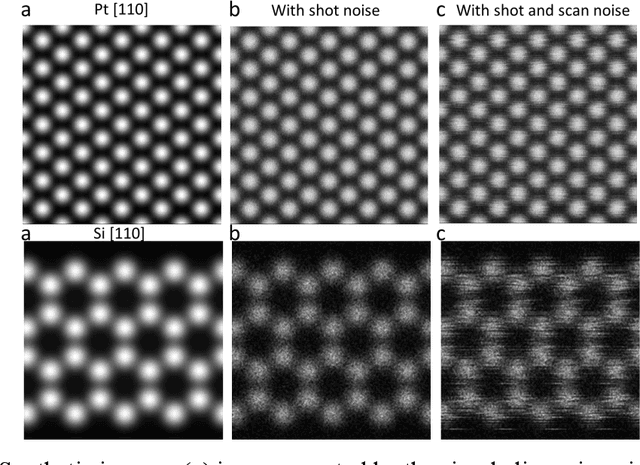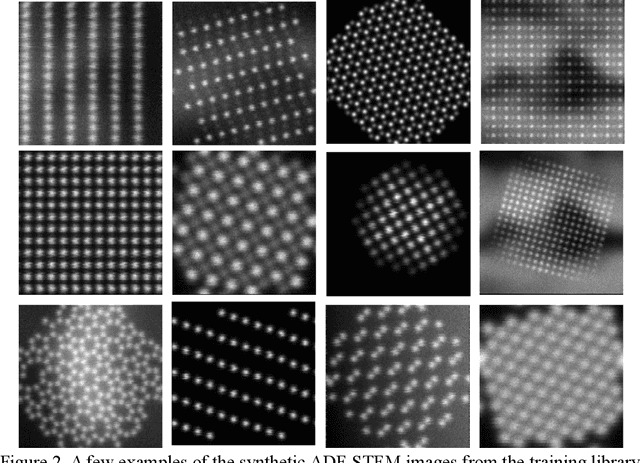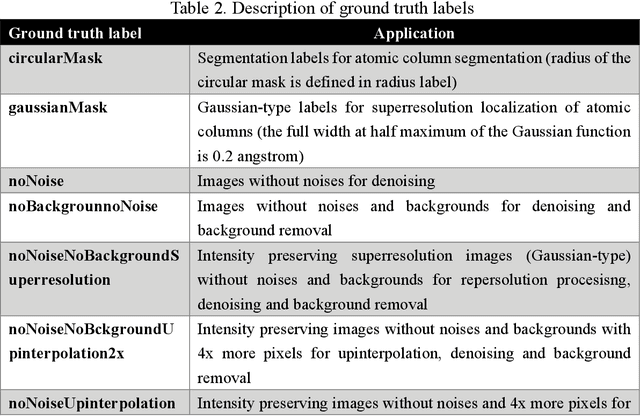TEMImageNet and AtomSegNet Deep Learning Training Library and Models for High-Precision Atom Segmentation, Localization, Denoising, and Super-resolution Processing of Atom-Resolution Scanning TEM Images
Paper and Code
Dec 16, 2020



Atom segmentation and localization, noise reduction and super-resolution processing of atomic-resolution scanning transmission electron microscopy (STEM) images with high precision and robustness is a challenging task. Although several conventional algorithms, such has thresholding, edge detection and clustering, can achieve reasonable performance in some predefined sceneries, they tend to fail when interferences from the background are strong and unpredictable. Particularly, for atomic-resolution STEM images, so far there is no well-established algorithm that is robust enough to segment or detect all atomic columns when there is large thickness variation in a recorded image. Herein, we report the development of a training library and a deep learning method that can perform robust and precise atom segmentation, localization, denoising, and super-resolution processing of experimental images. Despite using simulated images as training datasets, the deep-learning model can self-adapt to experimental STEM images and shows outstanding performance in atom detection and localization in challenging contrast conditions and the precision is consistently better than the state-of-the-art two-dimensional Gaussian fit method. Taking a step further, we have deployed our deep-learning models to a desktop app with a graphical user interface and the app is free and open-source. We have also built a TEM ImageNet project website for easy browsing and downloading of the training data.
 Add to Chrome
Add to Chrome Add to Firefox
Add to Firefox Add to Edge
Add to Edge